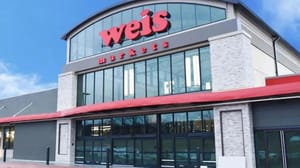Meal Kit Popularity Shows Convenience, Yet Personalization Is a Must
Food retailers are in a prime position to capture a healthy share of the growing segment. Food retailers are in a prime position to capture a healthy share of the growing segment.
Is cooking at home a dying institution? You might believe that’s the case, given the number of stories written about more people eating away from home and the growth of prepared food choices. Despite the popularity of cooking shows and celebrity chef programming, it seems that more people are seeking the convenience of prepared food options over shopping for ingredients and cooking dinner at home.
Preparing food at home takes time and effort, which is at a premium for many consumers. We have busy lives, and the likelihood of someone coming home from a long day at work to then cook dinner from scratch is slim.
However, there’s a counterpoint. Today’s consumers increasingly cite healthy eating as an important component of their daily lives. And cooking food at home from scratch using fresh and wholesome ingredients is the epitome of a healthy diet.
So, consumers want to eat out, but they value the health benefits and freshness of a meal prepared at home, if it doesn’t take too long or require much effort.
The solution for many of these consumers is meal kits. They help shoppers save planning and shopping time, they allow for quicker preparation and cook times, they let individuals experiment with new flavors and ingredients, and they provide a fun experience.
And food retailers sit in a prime position to capture this growing segment of hungry and time-crunched individuals.
Just look at the stats from Nielsen:
In-store meal kit sales are up more than 26% year over year, generating $154.6 million in sales.
10.5 million households purchased a meal kit in the last six months, with 25% of all households (that’s 30 million) saying they would consider purchasing one.
Sixty percent consider meal kit value to be extremely important, with 49% stating that low-cost items are important; 56% do not believe meal kits are affordable to every consumer, illustrating the need for retailers to demonstrate the value of meal kits versus traditional options.
While meal kit companies such as Blue Apron and HelloFresh have dominated the market, food retailers are making inroads as they develop and position their meal kit programs as a viable, affordable and, to some degree, a more personalized alternative to the meal kit brands.
Let’s look at the big picture: While supermarkets may have some catching up to do in terms of capturing their share of the meal kit market from the more established players, they have an advantage when it comes to variety and personalization. Why? Because of the sheer number of products and ingredients in their stores. This, in turn, lets their store chefs and dietitians not only develop unique and distinct meal kit options, but also potentially enable customers to choose specific flavors, ingredients or food options when selecting their kits.
Making Shoppers’ Lives Easier
Not all consumers plan their meals ahead of time; some are making this decision when shopping the store just hours or minutes before their meal. These individuals are more likely to make spontaneous purchases, including meal kits. However, subscription-based meal kit programs don’t allow for these types of impromptu eating occasions. This is another advantage supermarkets have over the meal kit competition, as they can provide an on-the-spot and convenient meal solution that makes their lives easier while also providing a fun and entertaining activity.
As consumer dining preferences changes, supermarkets must also adapt. Meal kits are an ideal way to accomplish this and, in most cases, can be done without a large undertaking at store level. If you’re interested in learning more about the growing importance meal kits are playing at the retail store level, please join IDDBA on May 23 for a free webinar presented by Daymon Worldwide. Information is available at www.iddba.org.
Mike Eardley is president and CEO of IDDBA.
About the Author
You May Also Like




